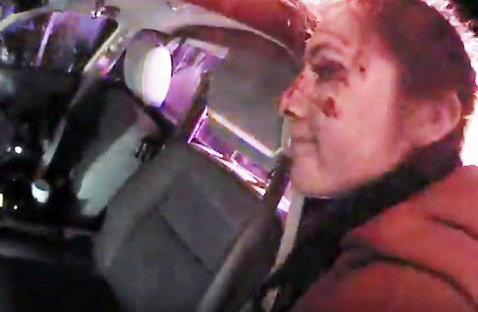The judge in a controversial police brutality case between a Santa Rosa Junior College student and a sheriff’s deputy warned in an April 13 court hearing that he could issue a gag order, after prosecutors released video footage of the event to social media outlets.
Judge Gary Medgivy’s statement came four days after the prosecution released several police body camera videos capturing a June 13 incident for which 19-year-old Gabbi Lemos was arrested for resisting arrest. Also released was a jailhouse audio-tape conversation between Lemos and her mother, Michelle Lemos, involving racial slurs against Sheriff’s Deputy Marcus Holton.
Initially, the April 13 hearing was to address the issue of vindictive prosecution and whether the misdemeanor charges against Lemos would be dropped. But after the prosecution revealed the body camera footage to the public, the judge ruled Sonoma County Prosecutor Deputy District Attorney Jenica Leonard will be subpoenaed and forced to testify in a court hearing April 28.
“Truth and accuracy is the issue at hand here, and I believe she [Leonard] should be cross-examined,” Medgivy said. The judge spoke of email communication of evidence between the DA management team.
“It is clear to the court the prosecution’s decision to file the misdemeanor charges was clearly a coincidence but [that] will have to be decided by a jury,” Medgivy said.
The audio tapes, consisting of multiple racial slurs, is consistent with the women’s behavior on the video footage. Their behavior in the video legally gives the deputy the right to investigate, according to court documents.
Another element discussed was previously redacted email evidence the court decided to keep sealed. The court ruled the emails fully corroborate the timing of the misdemeanor charge decision.
The rulings indicate the court will move forward with the resisting arrest misdemeanor charges against Lemos.
During an interview Lemos’ attorney, Izaak Schwaiger, said, “When cops have to go hands-on with an individual and that person is hurt, they are trained to arrest the suspect for ‘resisting arrest’ or ‘obstructing justice’ because the Supreme Court law states if a person is convicted of resisting arrest, they cannot sue the cops for excessive force.”
There are two different cases going on concurrently. The first is the Sonoma County case where the DA’s office is prosecuting a criminal misdemeanor charge for resisting arrest against Lemos. The second is Lemos’ civil case, filed in San Francisco’s federal court, alleging excessive force when Holton arrested Lemos June 13 after a high school graduation celebration at her Petaluma home.
According to court documents, Sonoma County Sheriff Steve Freitas has never disciplined any of his employees for excessive force. Freitas has been the Sonoma County Chief Sheriff for over eight years. Within the corrections division over the last five years, 1,623 documented incidences of excessive force have been filed. Management reviewed each case and found all to be within policy.
Schwaiger said, “You can’t make 1,623 cheeseburgers without f***ing a couple of them up, and we’re talking about humans here; real people.”


